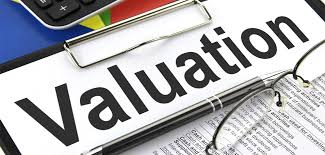
Invariably when it comes to the value of a business, the owner of the business will have an inflated idea of what the business is worth. Often, they have built the business into a profitable operation over many years and they believe that some of the important criteria for basing the price they want for the business is:
Circumstances of the sale.
The reasons for selling a business can affect its value. A forced sale is likely to drive down the value. For example, an owner in poor health may accept the first offer they receive, while an owner who goes through lengthy negotiations may get a higher price.
Tangible versus intangible assets
A business that owns property, machinery or stock-in-hand has tangible assets. These will have some resale value, making the business easier to value (including business asset valuation). Many businesses have almost no tangible assets beyond office equipment. However, their intangible assets may have significant value, such as a well-respected brand, customer goodwill, intellectual property and potential for growth. These intangibles can be harder to value.
Years of operation
The longer the business has been operating, the better the track record, cash flow and loyal customers who provide repeat business.
Whilst the above criteria may have some small influence on the sale price of a business, in almost all circumstances the single most important factor is the profitability of the business.
Circumstances of the sale seldom affect the price of a business, unless it is because of increasingly falling revenue. Tangible and intangible assets rarely affect the price of a business, although businesses with a high tangible asset value may be easier to finance. Whilst it is reassuring to purchase a business that has a significant amount of years trading, most businesses have a finite life, especially in the retail sector.
So, it is the profitability of the business that is the single most important factor. An experienced and qualified business valuer will have the experience to readjust the financial statements to arrive at a correct profitably figure, and from there use the correct valuation method to arrive at the correct market value of the business.
An added bonus to having a qualified business valuer provide a valuation on a business is that they will conduct due diligence on the business as part of the valuation process. The actual valuation cost is often far cheaper than having an accountant provide the same due diligence.
